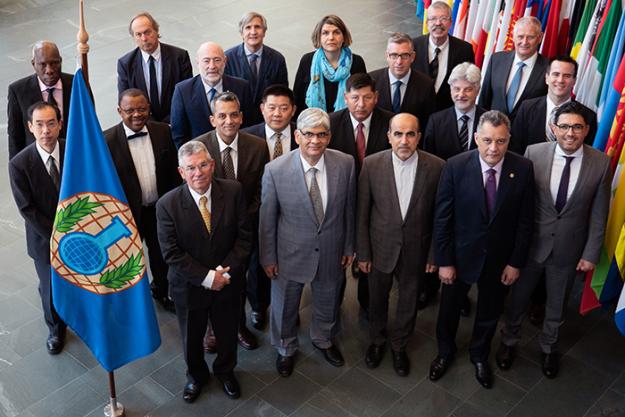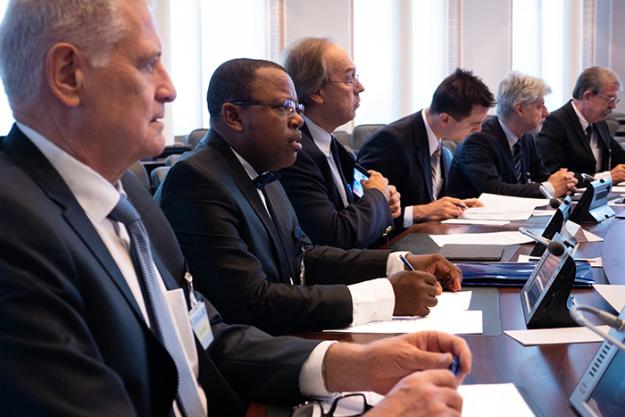
The Members of OPCW’s Confidentiality Commission 7 May 2018.
THE HAGUE, Netherlands — 19 June 2018 — The Commission for the Settlement of Disputes Related to Confidentiality elected a new Chairperson during its annual meeting held on 7 and 8 May at the seat of the Organisation for the Prohibition of Chemical Weapons (OPCW) in The Hague.
The former Ambassador of Romania to the Netherlands, Ambassador H.E. Mr Călin Fabian, was elected to serve for a one-year term as the new Chairperson.
OPCW’s Deputy Director-General, Mr Hamid Ali Rao, stressed in his opening speech that within the Technical Secretariat “a stringent regime governing the handling of confidential information is rigorously maintained. Our confidentiality-related procedures assure State Parties that the information they provide is fully protected at all times, in line with the Chemical Weapons Convention. In case of breaches or alleged breaches of confidentiality, the necessary procedures are in place to determine its cause and impacts”.

The OPCW Confidentiality Commission
The Deputy Director-General further underlined that with the members’ extensive collective legal, diplomatic and disarmament experience, the 2018 Confidentiality Commission is well-equipped to fulfil its responsibilities, if called upon.
At its 20th annual meeting, the Commission further reviewed its procedures and conducted a simulated exercise as part of its standard activities to ensure preparedness for dispute settlement.
Background
The Commission for the Settlement of Disputes Related to Confidentiality is a subsidiary organ of the Conference of States Parties (CSP) to the Chemical Weapons Convention (CWC). The Confidentiality Commission is authorised to consider disputes relating to breaches of confidentiality involving State Parties and the OPCW.
The Commission has 20 members who are appointed by the CSP for a term of two years and are proposed by OPCW’s five regional groups: Africa, Asia, Eastern Europe, Latin America and the Caribbean, Western European and Other States.
As the implementing body for the Chemical Weapons Convention, the OPCW oversees the global endeavour to permanently and verifiably eliminate chemical weapons. Since the Convention’s entry into force in 1997 – and with its 193 States Parties – it is the most successful disarmament treaty eliminating an entire class of weapons of mass destruction.
96% of all chemical weapon stockpiles declared by possessor States have been destroyed under OPCW verification. For its extensive efforts in eliminating chemical weapons, the OPCW received the 2013 Nobel Peace Prize.
